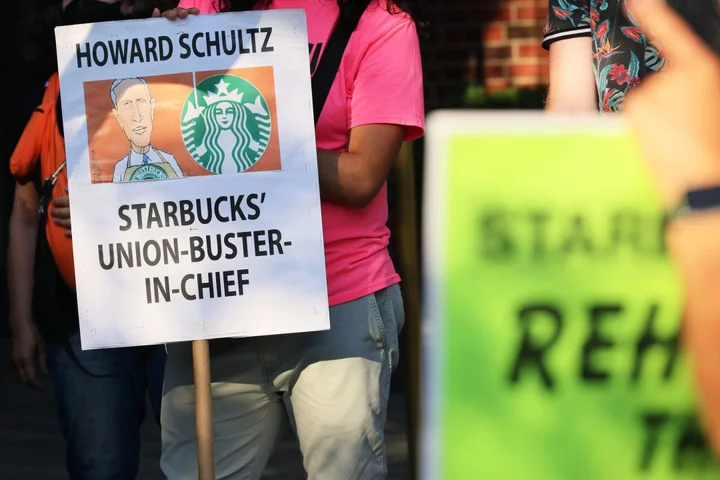Starbucks Corp. violated federal labor law when it shut down a unionized store in Ithaca, New York, a US labor board judge ruled Thursday.
US National Labor Relations Board judge Arthur Amchan wrote in his ruling that the shutdown of a store near Cornell University’s campus “was done in large part to discourage unionization efforts in Ithaca and elsewhere.” He said Starbucks failed to prove that it would close the store “absent its animus towards the pro-union employees who worked there.”
The store, located on Ithaca’s College Avenue, was one of Starbucks’ three corporate-run cafes in Ithaca, all of which voted last year to unionize. The company announced two months later that it would shut down the College Avenue store and this year, it said it would close the other two as well. The union has denounced the shutdowns as retaliation, and in May, Cornell’s Student Assembly passed a resolution urging the university to suspend ties with Starbucks over the dispute.
Starbucks said Thursday that it plans to appeal the ruling. “We strongly disagree with administrative law judge’s recommendations,” the company said in an email. Starbucks has said that the Ithaca stores had experienced numerous absences and high worker turnover.
In his ruling, Amchan wrote that Starbucks repeatedly violated the National Labor Relations Act in Ithaca, including by punishing union supporters and “suggesting to an employee it would continue to violate the act regardless of what the NLRB decided.” Along with reopening the College Avenue store and reinstating terminated employees with backpay, he wrote, the company should be forced to post a notice about workers’ rights at its cafes throughout the country.
90 Complaints
Regional NLRB directors around the country have issued over 90 complaints accusing Starbucks of illegal anti-union tactics, including refusing to negotiate fairly, while judges and NLRB members have ordered reinstatement of 23 terminated activists. Complaints are considered by NLRB judges, whose rulings can be appealed to labor board members in Washington, DC, and from there into federal court. The agency has the power to order policy changes and backpay, but not to make companies pay punitive damages or hold executives personally liable for wrongdoing.
Starbucks Workers United has prevailed in elections at over 300 of the company’s 9,000 corporate-run US stores since notching an initial landmark win in Buffalo, New York in late 2021. But none of those sites has come close to reaching a collective bargaining agreement with the company, and the pace of the union’s growth has slowed. Organizers have blamed this on the company’s alleged stonewalling at the bargaining table and retaliation in its cafes. Starbucks has countered that the union is the one refusing to negotiate in good faith.
Amchan said the impact of Starbucks’ behavior would extend beyond Ithaca. He cited “wide-spread publicity” given to unionizing efforts and the company’s response, arguing that employees “can only assume that they are risking their livelihood by organizing when they learn that Starbucks closed a store like College Avenue and got rid of almost all its employees.”
(Updates with details from ruling starting in second paragraph)

